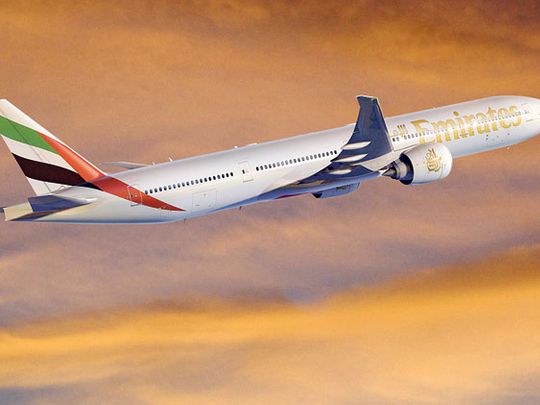
Dubai: Political instability in the Middle East will take its toll on the region's airlines, the International Air Transport Association (IATA) said yesterday.
Middle Eastern carriers are expected to return a net profit of $700 million (Dh2.6 billion) this year, down from $1.1 billion in 2010, IATA said.
Egypt, Tunisia and Libya account for about 20 per cent of the region's international passenger traffic.
But all three countries have recently experienced, or are in the midst, of major political upheaval.
Giovanni Bisignani, IATA's Director General and CEO, said: "Political unrest in the Middle East has sent oil over $100 per barrel. That is significantly higher than the $84 per barrel that was the assumption in December.
"At the same time, the global economy is now forecast to grow by 3.1 per cent this year — a full 0.5 percentage point better than predicted just three months ago.
‘Cut in half'
"But stronger revenues will provide only a partial offset to higher costs. Profits will be cut in half compared to last year and margins are a pathetic 1.4 per cent."
IATA downgraded its overall airline industry outlook for 2011 to $8.6 billion from the $9.1 billion it estimated in December 2010.
This represents a 46 per cent fall in net profits compared to the $16 billion earned by the industry in 2010.
On expected industry revenues of $594 billion, the $8.6 billion 2011 profit equates to a net profit margin of just 1.4 per cent.
Saj Ahmad, a UK-based aviation analyst with FBE Aerospace, said the IATA forecast was not surprising given the current instability across the region.
"IATA's assessment takes into account the instability in North Africa and parts of the Middle East. In a way this is a true litmus test of traffic resilience and we are some months away from seeing how this shakes out," he said.
"It is inevitable we are going to see other fees rise as oil prices continue their upward trajectory. But the UAE is also poised to benefit from regional difficulties as tourists flock to more safe havens like Dubai," he added. IATA said the turmoil in North Africa was balanced by the Gulf, which benefits from economic activity related to high oil prices and whose hubs continue to win long-haul market share.
However, the industry body also said that any further rise in oil prices would have a detrimental effect on airlines across the globe.
Brent crude oil was trading at $116 per barrel yesterday on fears the political turmoil in the region, particularly Libya, would spread to other major oil-producing countries.
IATA estimates that for every dollar increase in the average price of a barrel of oil over a year, airlines face an additional $1.6 billion in costs.











